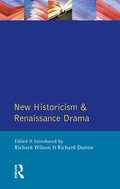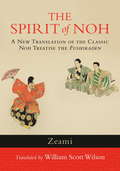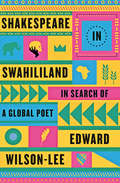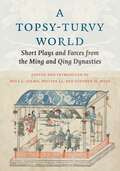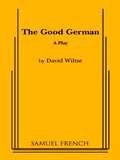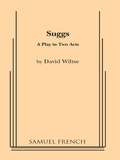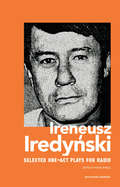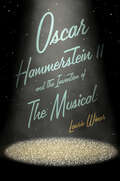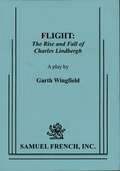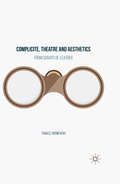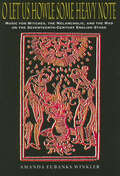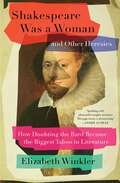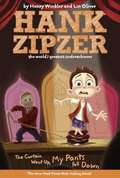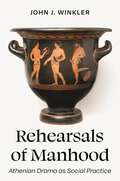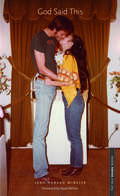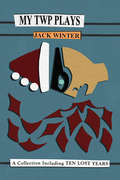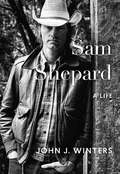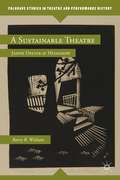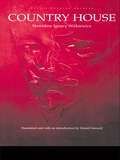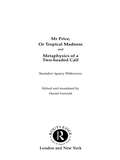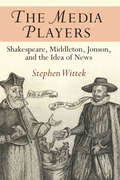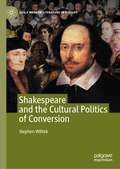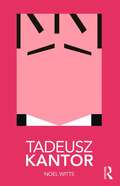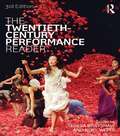- Table View
- List View
New Historicism and Renaissance Drama (Longman Critical Readers)
by Richard Wilson Richard DuttonNew Historicism has been one of the major developments in literary theory over the last decade, both in the USA and Europe. In this book, Wilson and Dutton examine the theories behind New Historicism and its celebrated impact in practice on Renaissance Drama, providing an important collection both for students of the genre and of literary theory.
The Spirit of Noh: A New Translation of the Classic Noh Treatise the Fushikaden
by William Scott Wilson ZeamiThe Japanese dramatic art of Noh has a rich six-hundred-year history and has had a huge influence on Japanese culture and such Western artists as Ezra Pound and The Japanese dramatic art of Noh has long held a fascination for people both in the East and the West. For six hundred years it has had a huge influence on Japanese culture--and has inspired such Western artists as Ezra Pound and William Butler Yeats. Here is a translation of the Fushikaden, a seminal treatise on Noh by the fifteenth-century actor and playwright Zeami (1363-1443), the most celebrated figure in the art's history. His writings on Noh were originally secret teachings that were later coveted among the highest ranks of the samurai class and first became available to the general public only in the twentieth century. The Fushikaden is the best known of Zeami's writings on Noh and it provides practical instruction for actors, gives valuable teachings on the aesthetics and spiritual culture of Japan, and offers a philosophical outlook on life. Along with the Fushikaden, translator William Scott Wilson includes a comprehensive introduction describing the intriguing history behind this enigmatic and influential art form, and also a new translation of one of Zeami's most moving plays, Atsumori.
Shakespeare in Swahililand: In Search of a Global Poet
by Edward Wilson-LeeAn exploration of Shakespeare as a global poetShakespeare in Swahililand tells the unexpected literary history of Shakespeare's influence in East Africa. Beginning with Victorian-era expeditions in which Shakespeare's works were the sole reading material carried into the interior, the Bard has been a vital touchstone throughout the region. His plays were printed by liberated slaves as one of the first texts in Swahili, performed by Indian laborers while they built the Uganda railroad, used to argue for native rights, and translated by intellectuals, revolutionaries, and independence leaders. Weaving together stories of explorers staggering through Africa's interior, eccentrics living out their dreams on the savanna, decadent émigrés, Cold War intrigues, and even Che Guevara, Edward Wilson-Lee--a Cambridge lecturer raised in Kenya--tallies Shakespeare's influence in Zanzibar, Kenya, Tanzania, Uganda, Ethiopia, and Sudan. Traveling through these countries, he speaks with everyone from theater directors and academics to soldiers and aid workers, discovering not only cultural dimensions traceable to Shakespeare's plays but also an overwhelming insistence that these works provide a key insight into the region. An astonishing work of empathy and historical vision, Shakespeare in Swahililand gets at the heart of what makes Shakespeare so universal and the role that his writings have played in thinking about what it means to be human.
A Topsy-Turvy World: Short Plays and Farces from the Ming and Qing Dynasties (Translations from the Asian Classics)
by Wilt L. Idema, Wai-Yee Li, and Stephen H. WestPlaywriting in many forms flourished during the late Ming and early Qing dynasties. Shorter theatrical genres in particular offered playwrights opportunities for experimentation with both dramatic form and social critique. Despite their originality and wit, these short plays have been overshadowed by the lengthy masterpieces of the southern drama tradition.A Topsy-Turvy World presents English translations of shorter sixteenth-to-eighteenth-century plays, spotlighting a lesser-known side of Chinese drama. Satirical and often earthy, these mostly one-act plays depict deceit, dissembling, reversed gender roles, and sudden upending of fortunes. With zest and humor, they portray henpecked husbands, supercilious and lustful monks, all-too-human sage kings, disgruntled officials, and overreaching young scholars. These plays provide a glimpse of Chinese daily life and mores even as they question or subvert the boundaries of social, moral, and political order.Each translation is preceded by a short introduction that describes the play’s author, context, formal qualities, and textual history. A Topsy-Turvy World offers a new view of a significant period in the development of the Chinese theatrical tradition and provides insight into the role of drama as cultural critique.
The Good German
by David WiltseFull Length, Drama \ 3 m, 1 f \ Int. \ Despite his prejudices, Karl Vogel offers refuge to a fugitive Jew during World War II to please his wife. Karl strongly dislikes Wilhelm Braun, but even after his wife dies he refuses to betray his devotion to her and her faith in his decency by evicting him. Karl's friend Siemi, a man who has anti-Semitic sympathies but does not agree with the German government's campaign to demonize Jews, has even become fond of Braun. Even so, Siemi becomes convinced he must betray Braun to the Gestapo in order to save Karl and himself. Karl is forced to decide whether his sense of decency is stronger than his sense of self preservation. Should he protect his unwanted guest or allow him to be turned over to a regime he finds repugnant? \ "Very powerful.''-Jewish Ledger
Suggs
by David WiltseFull Length, Drama / 4 m, 4 f / Int. / George Suggs, a bright, energentic young man, comes to the city to work as a sportscaster. He is fascinated but then repelled by the ugly realities he finds there, making him cynical and bitter. His career suffers, the wife he should never have married leaves him and he loses his mundane job. Dissolute and paranoid, making one last attempt to connect on a human level he employs a prostitute for company. Premiered at New York's Lincoln Center Theatre. / "Wry, funny sad, sharply observed, perceptive." -N.Y. Times
Ireneusz Iredynski: Selected One-Act Plays for Radio
by Kevin WindleThis vibrant anthology of radio plays features works by one of Poland's 'angry young men' playwrights. Ireneusz Iredynski made his début in literature as a Polish 'angry young man' in the late 1950s. He moved with great versatility from verse to stage plays, film-scripts and plays for radio. While some of the plays in this collection seem to present a bleak view of life, they show a gentler side of Iredynski. Here it is people's dreams rather than their worst nightmares that are explored. In these plays, situations are kept simple and the theatrical technique is spare and economical, but yet, the playwright demonstrates an unfailing theatrical flair and shows himself a master of dramatic tension and the final unexpected twist.
Oscar Hammerstein II and the Invention of the Musical
by Laurie WinerA new look at artist Oscar Hammerstein II as a pivotal and underestimated force in the creation of modern American culture You know his work—Show Boat, Oklahoma!, Carousel, The King and I. But you don’t really know Oscar Hammerstein II, the man who, more than anyone else, invented the American musical. Among the most commercially successful artists of his time, he was a fighter for social justice who constantly prodded his audiences to be better than they were. Diving deep into Hammerstein’s life, examining his papers and his lyrics, critic Laurie Winer shows how he orchestrated a collective reimagining of America, urging it forward with a subtly progressive vision of the relationship between country and city, rich and poor, America and the rest of the world. His rejection of bitterness, his openness to strangers, and his optimistic humor shaped not only the musical but the American dream itself. His vision can continue to be a touchstone to this day.
Flight (Wingfield)
by Garth WingfieldDrama / 4m, 2f / Unit Set / When he touched down in Paris after more than 30 hours in the air, he became the first person to cross the Atlantic in an airplane... and an instantaneous star, adored the world over. But that was only the first leg of his complicated journey. Welcome to the world of FLIGHT, a powerful, provocative new play. Following Charles Lindbergh during 14 perilous years of his life - from the journey to Paris through the kidnapping of his son and up to the beginning of World War II - FLIGHT is a rich examination of a singular American life... and a thoroughly fascinating theatrical experience.
Complicite, Theatre and Aesthetics: From Scraps of Leather
by Tomasz WiśniewskiThis book presents a pioneering critical study of Complicite's work throughout the years. Drawing on an extensive overview of the available research material - including interviews, manuscripts and the company's own archive - the book is framed within a clearly defined research perspective and explores the singularity of theatre communication. The book results from an encounter between the London-based - but cosmopolitan in scope - company, and a fresh application of the form-oriented scholarship of Eastern Europe, Yuri Lotman's semiosphere in particular. Focused on the aesthetics of Complicite, this study achieves a critical distance and undertakes multidimensional scrutiny of the available research material. By identifying the principles of Complicite's aesthetics, the book attempts to grasp the company's artistic paradigm. It focuses on ways of creating, preserving, and decoding meanings, rather than on the nuances of performance or contextual issues.
O Let Us Howle Some Heavy Note: Music for Witches, the Melancholic, and the Mad on the Seventeenth-Century English Stage
by Amanda Eubanks WinklerIn the 17th century, harmonious sounds were thought to represent the well-ordered body of the obedient subject, and, by extension, the well-ordered state; conversely, discordant, unpleasant music represented both those who caused disorder (murderers, drunkards, witches, traitors) and those who suffered from bodily disorders (melancholics, madmen, and madwomen). While these theoretical correspondences seem straightforward, in theatrical practice the musical portrayals of disorderly characters were multivalent and often ambiguous.O Let Us Howle Some Heavy Note focuses on the various ways that theatrical music represented disorderly subjects--those who presented either a direct or metaphorical threat to the health of the English kingdom in 17th-century England. Using theater music to examine narratives of social history, Winkler demonstrates how music reinscribed and often resisted conservative, political, religious, gender, and social ideologies.
Shakespeare Was a Woman and Other Heresies: How Doubting the Bard Became the Biggest Taboo in Literature
by Elizabeth WinklerAn &“extraordinarily brilliant&” and &“pleasurably naughty&” (André Aciman) investigation into the Shakespeare authorship question, exploring how doubting that William Shakespeare wrote his plays became an act of blasphemy…and who the Bard might really be.The theory that Shakespeare may not have written the works that bear his name is the most horrible, unspeakable subject in the history of English literature. Scholars admit that the Bard&’s biography is a &“black hole,&” yet to publicly question the identity of the god of English literature is unacceptable, even (some say) &“immoral.&” In Shakespeare Was a Woman and Other Heresies, journalist and literary critic Elizabeth Winkler sets out to probe the origins of this literary taboo. Whisking you from London to Stratford-Upon-Avon to Washington, DC, she pulls back the curtain to show how the forces of nationalism and empire, religion and mythmaking, gender and class have shaped our admiration for Shakespeare across the centuries. As she considers the writers and thinkers—from Walt Whitman to Sigmund Freud to Supreme Court justices—who have grappled with the riddle of the plays&’ origins, she explores who may perhaps have been hiding behind his name. A forgotten woman? A disgraced aristocrat? A government spy? Hovering over the mystery are Shakespeare&’s plays themselves, with their love for mistaken identities, disguises, and things never quite being what they seem. As she interviews scholars and skeptics, Winkler&’s interest turns to the larger problem of historical truth—and of how human imperfections (bias, blindness, subjectivity) shape our construction of the past. History is a story, and the story we find may depend on the story we&’re looking for. &“Lively&” (The Washington Post), &“fascinating&” (Amanda Foreman), and &“intrepid&” (Stacy Schiff), Shakespeare Was a Woman and Other Heresies will forever change how you think of Shakespeare…and of how we as a society decide what&’s up for debate and what&’s just nonsense, just heresy.
The Curtain Went Up, My Pants Fell Down (Hank Zipzer, the World's Greatest Underachiever #11)
by Henry Winkler Lin OliverHank Zipzer is failing math, so he has to work with Heather Payne, resident class brain, to help get his grades up. At the same time, Hank’s school is putting on a production of The King and I. As coincidence would have it, Hank is cast as the King, and Heather as Anna. But when Hank’s dad tells him he can only appear in the play if he gets a B on his next math test, Hank knows he has to hit the books. Can Hank pull through in time for the show?
Rehearsals of Manhood: Athenian Drama as Social Practice
by John J. WinklerA bold reconception of ancient Greek drama by one of the most brilliant and original classical scholars of his generationWhen John Winkler died in 1990, he left an unpublished manuscript containing a highly original interpretation of the development and meaning of ancient Greek drama. Rehearsals of Manhood makes this groundbreaking work available for the first time, presenting an entirely novel picture of Greek tragedy and a vivid portrait of the cultural poetics of Athenian manhood.Ancient Athens was a military conclave as well as an urban capital, and male citizens were expected to embody the ideal of the Athenian citizen-soldier. Winkler understands Attic drama as a secular manhood ritual, a collaborative aesthetic and civic enterprise focused on the initiation of boys into manhood and the training, testing, and representation of young male warriors. Past efforts to discover the origins and development of Greek tragedy have largely treated drama as a literary genre, isolating it from other Athenian social practices. Winkler returns Greek tragedy to its social context, showing how it was one among many forms of display and performance cultivated by elite males in ancient Greece.The final work of a celebrated classical scholar, Rehearsals of Manhood highlights the civic function of the dramatic festivals at classical Athens as occasions for the examination and representation of boys on the verge of manhood, and offers a fresh explanation of how dramatic performance fit into the social life and gender politics of the Athenian state.
God Said This (Yale Drama Series)
by Leah Nanako WinklerThe 2018 winner of the Yale Drama Series competition is a riveting exploration of family and death Set in Kentucky, this compelling drama centers around a Japanese-American family reunited as their matriarch undergoes cancer treatment. The father, James, is a recovering alcoholic seeking redemption, and the two daughters are struggling to overcome their differences—Sophie is an ardent born-again Christian, while Hiro lives a single’s life in New York City. John, an old high school classmate of Hiro’s who is now a single dad, worries about leaving a legacy for his son. Wry and bittersweet, God Said This vividly captures the complexities of a familial reconciliation in the throes of crisis and looks deeply at the meaning of family—Japanese, Southern, and otherwise. This is the first Yale Drama Series winner chosen by Pulitzer prize–winning playwright Ayad Akhtar, who describes the play as conveying “a deeply felt sense of the universal—of the perfection of our parents’ flawed love for each other and for us; for the ways in which the approach of death can order the meaning of a human life.”
My TWP Plays
by Jack Winter Bruce BartonMy TWP Plays presents five important plays written by Jack Winter while he was resident playwright at Toronto Workshop Productions, one of the first great troupes of the experimental and alternative theatre movement. The carnivalesque style of the selected works in this anthology reflects the turbulence, contradictions, and subversion of the social revolution during which they were written and first produced, as well as the cultural politics at a time when Canadian artists were investigating new, noncolonial, and distinctly Canadian forms of expression that would define the nation and challenge received artistic styles and practices. Extensive notes by the playwright and a foreword by the director and dramaturge Bruce Barton (University of Toronto) illuminate an important two-decade period in the evolution of contemporary Canadian theatre, while providing glimpses of the artistic conditions, the cultural environment, and the personal circumstances within which the works were created.Before Compiègne (1963) wildly imagines Joan of Arc's final days.The Mechanic (1964) and its experiments in form and staging offer a contemporary take on Molière and the commedia dell'arte.The Death of Woyzeck (1965) dismantles, reconstructs, and rewrites Georg Büchner's famous fragmentary original of 1837.Ten Lost Years (1974) presents a highly theatricalized full-length dramatization of Barry Broadfoot's collected interviews with Canadian survivors of the Great Depression.You Can't Get Here from There (1975) examines Canada's complicity in the 1973 overthrow of Chilean president Salvador Allende.
Sam Shepard: A Life
by John J. Winters“John Winters offers a master class in literary sleuthing, untangling the many lives and unearthing the origin story of America’s foremost Renaissance man of letters.” —Kelly Horan, coauthor of Devotion and DefianceWith more than fifty–five plays to his credit—including the 1979 Pulitzer Prize–winning Buried Child, an Oscar nod for his portrayal of Chuck Yeager in The Right Stuff, and an onscreen persona that’s been aptly summed up as “Gary Cooper in denim”—Sam Shepard’s impact on American theater and film ranks with the greatest playwrights and actors of the past half–century.Sam Shepard: A Life gets to the heart of Sam Shepard, presenting a compelling and comprehensive account of his life and work.In a new epilogue, added by the author after Shepard’s untimely death in July of 2017, John J. Winters offers a glimpse into the enigmatic author’s last days, when very few knew he was suffering from ALS.“An excellent biography . . . Mr. Winters is especially good on the backstage of one of Mr. Shepard’s most frequently revived works, True West . . . Mr. Winters has an interesting story to tell, and he recounts it ably, bringing us close to a figure who, he admits, avoids intimacy.” —The Wall Street Journal“A new, thoroughly researched biography . . . Winters does indeed capture a personality more anxious and self–doubting than previous biographers have grasped.” —The Washington Post“Meticulously presents the facts of Shepard’s complex life along with incisive descriptions and analyses of diverse productions of Shepard’s demanding and innovative plays . . . Winters portrays Shepard as a magnetic, enigmatic, and multitalented artist drawing on a deep well of loneliness and self–questioning, keen attunement to the zeitgeist, and penetrating insight into human nature.” —Booklist (starred review)
A Sustainable Theatre
by Barry B. WithamBegun as an audacious experiment, for thirty years the Hedgerow Theatre prospered as America's most successful repertory company. While known for its famous alumnae (Ann Harding and Richard Basehart), Hedgerow's legacy is a living library of over 200 productions created by Jasper Deeter's idealistic and determined pursuit of 'truth and beauty. '
Country House: Polish Theatre Archive
by Stanislav I. Witkiewicz D. GerouldCountry House, a ''comedy with corpses,'' is a wicked subversion of all those realistic psychological dramas of jealousy, adultery, murder and suicide that ask to be taken seriously. Witkacy's send-up assumes the form of a ghost story full of surprises, in the course of which an entire family of four is gleefully dispatched to the other world. When it was first performed in 1923 in Torun, Country House was judged unsuitable for the general public because it derided moral, social and dramatic convention. Three years later, as directed by the playwright himself in Lwów, the drama proved an unexpected success with audiences (although it only ran for four nights) and ever since has been among Witkacy's most frequently performed works. Today we can appreciate Country House not only as a systematic demolition of stage realism, but also as an anxious probing of the elusive boundaries between life and death, exposing the ''dark places'' of the human psyche that make us laugh nervously.
Mr Price, or Tropical Madness and Metaphysics of a Two- Headed Calf
by Stanislaw Ignacy WitkiewiczThe Polish playwright and artist Stanislaw Ignacy Witkiewicz, known as Witkacy, is now recognized as Poland's leading theatrical innovator of the interwar years and one of the outstanding creative personalities of the European avant-garde. This volume contains two of Witkacy's "tropical" plays inspired by the playwright's trip to Ceylon and Australia in 1914 with his close friend, the anthropologist Bronislaw Malinowski. Mr. Price, or Tropical Madness is a drama of heightened passion and greed among British colonists in Rangoon who seem to have stepped out of Joseph Conrad's tales of the South Seas. Metaphysics of a Two headed Calf, set in New Guinea and Australia, pits savage European imperialists against a native tribal Australia and pits savage European imperialists against a native tribal chieftain whose fetish of a great golden frog offers greater insight into the mystery of existence than the Westerners' shallow rationalism. Both plays puncture the white rulers' poses of superiority and parody their images of the tropical Other. Also included in the volume are Witkacy's Foreword to Metaphysics of a Two-Headed Calf in which the playwright defends his concept of theatre as an autonomous art with a scenic language of its own and an appendix containing a documentary itinerary of Witkacy's journey to Ceylon.
The Media Players
by Stephen WittekThe Media Players: Shakespeare, Middleton, Jonson, and the Idea of News builds a case for the central, formative function of Shakespeare's theater in the news culture of early modern England. In an analysis that combines historical research with recent developments in public sphere theory, Dr. Stephen Wittek argues that the unique discursive space created by commercial theater helped to foster the conceptual framework that made news possible. Dr. Wittek's analysis focuses on the years between 1590 and 1630, an era of extraordinary advances in English news culture that begins with the first instance of serialized news in England and ends with the emergence of news as a regular, permanent fixture of the marketplace. Notably, this period of expansion in news culture coincided with a correspondingly extraordinary era of theatrical production and innovation, an era that marks the beginning of commercial theater in London, and has left us with the plays of William Shakespeare, Ben Jonson, and Thomas Middleton. Book jacket.
Shakespeare and the Cultural Politics of Conversion (Early Modern Literature in History)
by Stephen WittekThis book takes a close look at Shakespeare’s engagement with the flurry of controversy and activity surrounding the concept of conversion in post-Reformation England. For playhouse audiences during the period, conversional thought encompassed a markedly diverse, fluid amalgamation of ideas, practices, and arguments centered on the means by which an individual could move from one category of identity to another. In an analysis that includes chapter-length readings of The Taming of the Shrew, Henry IV Part I, The Merchant of Venice, Othello, and The Tempest, the book argues that Shakespearean drama made a unique and substantive intervention in public discourse surrounding conversion, and continues to speak meaningfully about conversional experience for audiences in the present age. It will be of particular benefit to students and scholars with an interest in theatrical history, performance theory, theology, cultural studies, race studies, and gender studies.
Tadeusz Kantor (Routledge Performance Practitioners)
by Noel WittsTadeusz Kantor – a theoretician, director, innovator and painter famed for his very visual theatre style – was a key figure in European avant-garde theatre. He was also known for his challenging theatrical innovations, such as extending stages and the combination of mannequins with living actors. The book combines: a detailed study of the historical context of Kantor’s work an exploration of Kantor’s own writings on his theatrical craft a stylistic analysis of the key works, including The Dead Class and Let the Artists Die, and their critical reception an examination of the practical exercises devised by Kantor. As a first step towards critical understanding, and as an initial exploration before going on to further, primary research, Routledge Performance Practitioners offer unbeatable value for today’s student.
The Twentieth Century Performance Reader
by Noel Witts Teresa BrayshawThe Twentieth-Century Performance Reader has been the key introductory text to all types of performance for over fifteen years. Extracts from over fifty practitioners, critics and theorists from the fields of dance, drama, music, theatre and live art form an essential sourcebook for students, researchers and practitioners. This carefully revised third edition offers focus on contributions from the world of music, and also privileges the voices of practitioners themselves ahead of more theoretical writing. A bestseller since its original publication in 1996, this new edition has been expanded to include contributions from: Bobby Baker; Joseph Beuys; Rustom Bharucha; Anne Teresa de Keersmaeker; Hanns Eisler; Karen Finley; Philip Glass; Guillermo Gómez-Peña; Matthew Goulish; Martha Graham; Wassily Kandinsky; Jacques Lecoq; Hans-Thies Lehmann; George Maciunas; Ariane Mnouchkine; Meredith Monk; Lloyd Newson; Carolee Schneemann; Gertrude Stein; Bill Viola. Each extract is fully supplemented by a contextual summary, a biography of the writer, and suggestions for further reading. The volume's alphabetical structure invites the reader to compare and cross-reference major writings on all types of performance outside of the constraints and simplifications of genre, encouraging cross-disciplinary understandings. All who engage with live, innovative performance, and the interplay of radical ideas, will find this collection invaluable.
